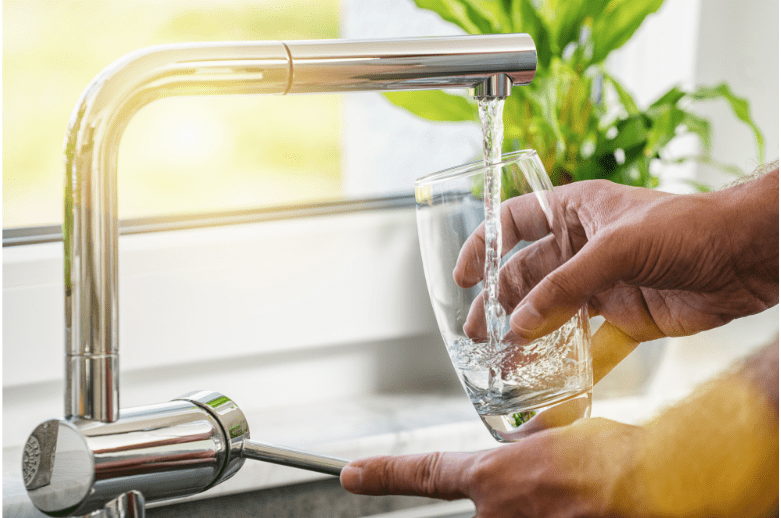Water Softeners vs. Water Conditioners: Which Is Better?

As a homeowner, you want to be sure the water you and your family drink is clean, safe, and healthy. Installing a quality home water filter system is a great way to ensure you never have to worry about whether your tap water is clean. There are several types of water filtration systems on the market, however. How do you know which is best for your needs?
The experts at Beemer Plumbing frequently install water softeners and water conditioners in Kansas City homes. Let’s go over the difference between these two, so you can decide what’s best for your family.
What Is a Home Water Filter?
Before we dive into water softeners vs. water conditioners — both water filtering systems — let’s back up and talk about filter systems in general. What is a water filter system, and why would you need one?
A home water filter is a device that removes impurities from your tap water, e.g., sediment, chlorine, bacteria, and heavy metals. There are different types of home water filters available, including pitcher filters, faucet filters, and whole-house systems. The systems we’re covering here are whole-house systems.
When choosing a home water filter, you need to consider factors like the size of your household, the level of impurities in your water, and your budget. You should also consider the contaminants in your tap water and the effectiveness of different filters at removing those contaminants.
Softeners vs. Conditioners
Now let’s dive into the differences between water softeners and water conditioners. Both are designed to treat hard water, meaning water that contains high levels of minerals like calcium and magnesium.
Water softeners. Water softeners work by using a process called ion exchange. The softener contains resin beads that are coated with sodium ions. When hard water flows through the resin, the calcium and magnesium ions in the water are exchanged for sodium ions. This process effectively “softens” the water.
Water conditioners. Water conditioners use a different process to treat hard water. Instead of removing minerals like calcium and magnesium, they change their chemical structure. This prevents the minerals from forming hard deposits on your pipes and appliances.
Pros and Cons
There are pros and cons to each system.
Water Softeners
One of the main advantages of water softeners is that they’re very effective at removing minerals from tap water, which helps prevent mineral buildup in pipes and appliances. This extends the life of your appliances and helps keep plumbing issues to a minimum. Soft water is easier on your skin and hair and is less likely to cause dryness and irritation. It also reduces soap scum in the showers and bathtubs and makes your laundry detergent go further because you need less of it.
Water softeners can be expensive to purchase and install. They use a lot of water and require regular maintenance to ensure they function correctly. Also, water softeners sometimes increase the sodium content in tap water, which may not work for family members on low-sodium diets.
Water Conditioners
Water conditioners are a good option if you want a low-maintenance home water treatment option. Unlike softeners, conditioners don’t require salt or electricity to operate. Additionally, water conditioners don’t increase the sodium levels in tap water. They also use less water than softeners do.
However, water conditioners typically aren’t as effective as water softeners at removing minerals from tap water. Also, they’re not as effective in areas with extremely hard water.
Figuring Out What’s Right for Your Home
Ultimately, the choice between a water softener and a water conditioner depends on your specific needs and preferences. Regardless of your choice, be sure to maintain your filter system properly and test your water periodically to ensure that it works effectively.
If you need help choosing or maintaining a home water filter system, call Beemer Plumbing. Our team of expert plumbers can help you identify the system that best fits your needs and then keep it running smoothly. Contact us today to schedule an appointment or learn more about our home water filter services. We’re here to help!
